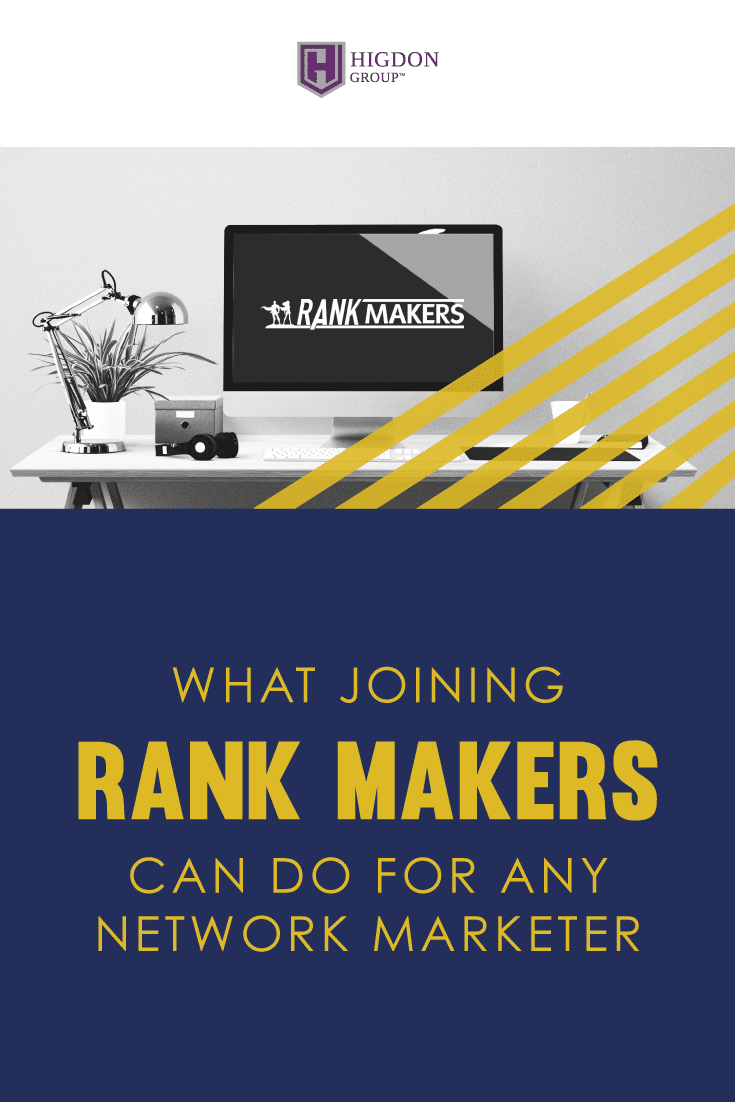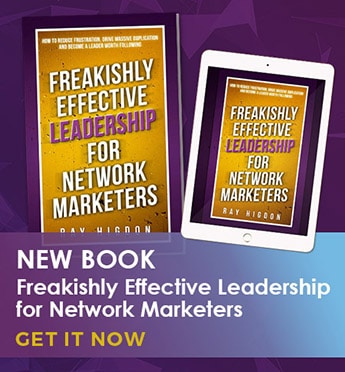Today I’m going to cover the best way to handle objections in sales.
First, I’m going to talk about why you’re getting objections and how to actually reduce them. Next, we will talk about how to handle price objections. Finally we will talk about how to handle the “lack of money” objections.
Now, first of all, I have been in a lot of different types of sales. When I was 18, 19, I was in telemarketing selling long distance. I know some of you don’t know what that is, but it is making 450 calls a day. If you got 35, 40 sales a week, then you were in the top 2% of the company. So if you calculate that out…that comes out to like 1%, or less than 1%. It is a very low percentage. But that was a very tough business, just cold calling on the phone. 30% of the time, I was cursed out so you had to be tough. I remember doing business going door to door in the hot Florida sun selling advertising, and had to make it past the gatekeeper. Another time, 22 days a month, I was on the road to Vegas, Chicago, Phoenix, Miami, LA, doing a presentation selling a real estate education system, $7,000 system and a 90 minute pitch to a cold audience that we bought lunch or dinner. Right. So most of the people came for the free food and you had to get them to pull that wallet out. Then after that, going from losing it all in the real estate market to being the number one income earner of a network marketing company.
All this to say, I have dealt with a lot of objections, I promise you in a lot of different scenarios. I’m sure there’s some sales things I’m leaving out. But that gives you kind of a rough gist of how I am very familiar with overcoming objections and dealing with objections.
Why you’re getting objections and how to reduce them.
Here’s what I know to be true by coaching hundreds and thousands of people around objections and getting more sales, etc. The reason you’re getting objections and how to reduce them is because you’re always going to get the thing that you’re most afraid of when reaching out. If you’re super afraid of people thinking it’s overpriced, I’m telling you, you are sending that vibration out, you’re sending that out. So you’re going to get people who complain about the price and you’re going to get that objection. Now if you are not thinking about it and you are thinking positively, is it going to eliminate all objections? Definitely not. But it will greatly reduce them because of that theme that you’re really worried about….just ask yourself this question, “what’s the number one question or objection you dread when you’re in sales?” How much are you getting? You’ll find that there’s definitely a correlation between what you’re afraid of most and what you’re getting.
You might say, “Well, Ray, I’m afraid of it, because I keep getting it.”
Well, you keep getting it because you’re afraid of it. Right?
What we focus on in our mind has to show up in a certain way. We continue to verify what we believe to be true. This is neuroscience. You want to be aware of it. What am I so scared of? Now let me equip myself. You can tell yourself, “hey, you know what, if I get that objection, it’s not that big a deal.” If you start to reduce your resistance, and you start to reduce how you feel and how you’re worried about that objection, you will magically see it change. I’m telling you, test this out. Whatever it is that you’re worried about, instead of being worried about it, get strong and that’s what champions do. Champions want to find their weak points, they want to find “where am I weak.” There it is, let me improve that thing. Get less worried about that main objection that you keep getting or you’re so worried about and practice it, right, have someone say it to you, have your spouse or children say it to you, and you roll it off your tongue of how you’re going to handle it next time you get it, all of a sudden, you’ll reduce your resistance around it and you will actually start experiencing it less.
How to handle price objections.
Let’s talk a little bit about price objections. There’s a couple of ways that you can handle them. We have talked about this on our YouTube channel before, but I’m going to give you a couple of different ways.
One, there’s a way for you to preemptively strike at a price objection. It’s really powerful and it has everything to do with helping someone’s identity. Let’s say you have a luxury product or you have something that is a little pricier than what you would normally see it at, right. You can actually preemptively strike at this objection before you even say what it is. If you went to someone and again if you’re selling something that’s higher end or maybe a little bit more expensive than people are used to you could say, “you’ve always (and this would be someone that you know, right?You wouldn’t say this to a stranger because that would be…strange. You could say it a different way. But people that, you know, you could say…..”you’ve always struck me as someone who really appreciated a quality product or you’ve always struck me as someone who appreciated quality.”
By saying that you’re setting an identity in them, that is going to have them more open to seeing something that is higher priced. “You’ve always seemed to me like someone that really appreciates quality and I wanted to show you this thing.”
I’m telling you, if you do that, you will get fewer objections to price. Now, let’s say that you did that or didn’t do that, you’ve shown them the thing, they’ve learned the price. Now they’re saying, “hey, that’s overpriced.” Depending on what category your product is in, my favorite way of handling price objections is saying, “You know what, the owners of the company could have used cheaper products, but they wanted something that worked.” That could be true of a health and wellness product, that could be true of a gadget or it could be true of a lot of different things. But the owners could have used cheaper products, but they wanted something that worked.
Here’s the reality, if you look at what problem does your product or service solve? If it solves that problem, is it worth it? Now, if you’re not sure, then you’re going to struggle to sell this product. It’s one of the things I really appreciated about Zig Ziglar. Zig Ziglar was (he passed away a few years ago) a sales trainer and a sales guru and he made his success by selling pots and pans. That’s how he originally had his success. It was called, I don’t know if they had a different name… But now it’s called salad master. The salad master pots and pans, They’re pricey, they’re not cheap. The first step for you to sell his pots and pans, you had to buy them because he didn’t want anyone out there selling them who hadn’t bought them yet. He wanted them to experience them. He wanted them to see that they are nice, they are high quality…we have them, they’re great, actually.
If you are questioning if your product is worth it, boy, are you going to send that vibe to everyone you ever talked to and you’re going to constantly get this objection. Instead, you have to ask yourself, if this solves the problem, and you have to believe that it does, right. If you don’t believe that it does, then either find enough evidence to disprove your theory that it may not, and find out that it does, or you need to sell something else, quite frankly. I’m not going to suggest you sell something and get really good at selling something you don’t actually believe works or doesn’t actually help people, right? Find out if it works, if you’re not sure, get with someone in the company and get testimonials from people that it’s worked for, so that you are not sending that vibe of “I’m not sure it’s worth it.” But here you go, here’s how much it is. I hope that helps with pricing.
Let’s hear from you.
Before we move into talking to people that say they don’t have the money for it, I would love to hear from you. What objections are you getting over and over? How does that play out with what I’ve discussed in this post so far? I would love to hear from you.
How to handle the “lack of money” objections.
What do you do when someone says, “I just don’t have the money.” Well, first of all know that they’re almost always lying, they almost always have the money, they may not see the value in your product. They may have some money, maybe they need a little bit depending on the price of your product. But if they knew for sure that your product or service would solve the problem that they have, they would come up with the money. I’m telling you, right? You ever see, you ever have a friend who’s always complaining about money, but they have the latest iPhone, right? People find the money for the things that they want. They don’t always find the money for the things they need, but they find the money for the things that they want. They will somehow find it…they may not even have a job, how do you get that $1,000 phone? Right? They will come up with it and they will find a way.
So first is determining if they actually want the problem to be solved that your product or service solves, right? Do they want to lose weight? Do they want to make money, whatever it is that you’re selling. That’s the first battle. If someone says to you, I just don’t have the money, they may be blowing you off. They may be lying to you. They may just be throwing something out there. You will leave them alone, because they think you’re all about the money. So if I say I don’t have money, then they’ll leave me alone. Right? Very possible.
Ask them this question. Say “okay, got it. If you have the money, would you move forward with this? Or do you see yourself doing this? Right?”
They may say, “you got me….now I’m not interested.”
So cool. Hey, no problem. You don’t have to browbeat them. You don’t have to beat them up. I know there’s a lot of trainers out there that will teach you every single closing technique on every single person. I would rather if they give me that, I would rather you know roll back to them later on. Or go talk to more people, etc. But as you get more advanced, you can get different questions around that. But I want to keep this simple for you.
If they say “nah.”
“Cool, no problem. Do you know anyone that does want to lose weight? Do you know anyone that does want to make some extra money? Do you know anyone that does want the benefit of your product or service?”
If they say, “yeah, you know what, if I did have the money, I would move forward?”
“Got it. Got it. Now, let me just verify. You’re saying (it’s whatever $700 to start) you don’t have some $700 in your bank account, on a credit card, under the mattress? You don’t have those dollars anywhere? Is that what we’re saying? I just want to help you out here.”
You are helping them because they said if I had the money, I would do it. Right? Verify with them. Now, what you’ll find is sometimes they’re like, “Oh, well, I guess I could use a credit card.” Oh, great. Right swipe. And I’ve had that happen or they’ll say “Nah, man, I don’t.” Here comes the real critical question. Because if you don’t ask this question, you’re fighting for the full amount, the full 700 or 100, or 1000, or whatever it is that you’re selling, okay, we verified that. They said, if they had the money, they would move forward, we verify that they don’t have the money, they’re at least telling us they don’t have the money in a bank account, credit card, etc.
Ask this question. “Well, it’s $700 to start, how far off are we?”
What you’re asking without really asking is how much you do have right now. Right? I have had people say, “oh, I have this much, I would need 50 bucks.” Right? Now, I’m not going to give them the 50 bucks, but I’m going to help them come up with ideas on how to get the 50 bucks. I have had people say, “oh, I need 50 bucks, or I need 100 bucks.”
“Okay, cool. Well, I’m going to help you out, pull out a piece of paper and I want you to write at the top, I’m so happy and grateful I came up with the money. Then I want you to write ideas on where you could come up with the money. Where can you… and keep in mind, you’re not talking the full 700 or whatever, you’re talking about the difference? Where can we get that 50 bucks?”
“Well, my uncle owes me 20 bucks. You know what I’ve been meaning to have a yard sale. I’ve been meaning to you know, sell my old gold…..Gold is expensive. Now I can get rid of some of that jewelry I don’t wear anymore.” Right? I have had people sell things, I have had people do yard sales. I have had people sell their xbox. I have had people sell bicycles. I have had people sell jewelry, all kinds of different things. Now they’re doing it because they want to.
This is the difference between persuasion and convincing.
Convincing is getting someone to do what you want them to do. Persuading is getting them to do what they already want to do.
They want to buy your product or service, right? They want to get rid of that xbox if they’re having these thoughts. They want to get rid of that thing. They want to join your thing. You’re persuading them to help them do what they already want to do. That’s what you have to embrace is this isn’t any time we can always pull the plug, right? If you know, this is not a pushy thing, this is a pulley thing, right? Let me pull you to the version of the person that you actually want where your problem is solved versus hey, you really need to do this. I never say that. I would never say that doesn’t work.
Check this out!
I hope this was helpful to you. If you want more help around closing and sales, make sure you subscribe to our YouTube channel because we have a lot of it on here but also we have a free PDF. It’s my 30 favorite prospecting and closing questions. Here is the link, Higdongroup.com/30questions. You can click that, download it for free and use it for whatever sales that you’re in. I hope this helps you.
 Ray Higdon
Ray Higdon
Play Bigger. Make An Impact.
Considering Coaching? Check out my Work with Me tab and Survey where we Help People Everyday








